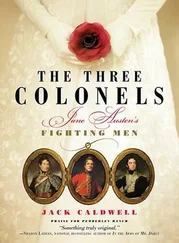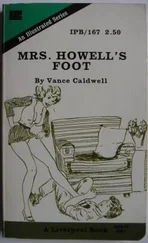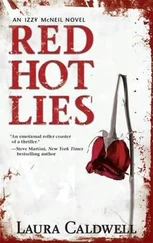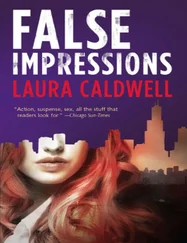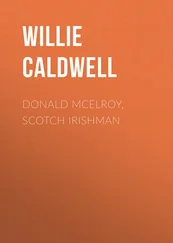Again she pressed the bristles farther into the turpentine, encouraging a deeper drink. Paint tubes were capped, but against her usual practice, she didn’t bother to roll the bottoms or to smooth the wrinkled and dented metal. Considering the fiery burial to which she had consigned her Lazarus, it seemed only right that the flesh tones used in his resurrection were mostly Burnt Sienna and Burnt Umber.
There was nothing left in the Yellow Ochre and at first she considered throwing the empty tube away, but habit told her that there might be one last dollop inside, waiting to be forced out and given to the light. No longer susceptible to amusement, she threw it out.
One by one the brushes were cleaned, squeezed into the rags she’d set out, mostly scraps she hadn’t needed for the shroud. The cloth wasn’t as absorbent as she might have liked, but it would do. She rubbed the bristles into the cloth, dipped them again into the turpentine, squeezed them with her fingers, then rubbed them once more into the cloth. Next they were washed with soap and water at the bathroom sink, a final cleansing. They were dried with a clean white towel, pressed into the nap, until as much water as possible had been drawn out. If the towel showed the least streak or smudge of color, the brush was returned to the turpentine and the entire process begun again.
On a cleared space of the worktable, the brushes were lined up, not according to size or length but as they happened to be lifted from Dempsey’s fist. She thought of arranging them into some kind of order, perhaps even the order in which she’d bought them—memories that, for whatever reason, caused her no effort. She could even remember something of the day itself on which each purchase of each brush had been made: a sense of the weather, some part of her clothing, an incident on the way to Pearl Paint or Utrecht or Central, or on the way home—a dog, the tubs and bins of fish in the Chinese market on Canal Street. On the day of the red sable brush—from Central on Third Avenue—there had been a sudden storm and she had kept right on walking. After she was completely soaked, she’d deliberately peed because she knew it wouldn’t make any difference, wetting herself, letting it run down her legs, indistinguishable from the rain that had already soaked her to the bones. The round-tip brush still seemed to smell of fish because she’d stuck the bristle end into the bag, piercing the skin of the fish and drawing into itself forever the last oils and fluids the fish would ever produce. A man with purple eyes had sold her the two-inch brush, and it seemed only fitting that the handle, too, was purple. She never saw him again and the two-inch remained her only brush with a purple handle.
When she had finished lining them up, she counted. Forty-seven brushes had been used—one of them an ox-hair, now a stub, dated back to the days of her poverty. She’d stolen it from Pearl Paint on Canal Street, slipping it up the sleeve of her winter coat. To make sure it wouldn’t fall out, she’d kept scratching the back of her head so she could keep her arm raised. She’d worried that the pointed end would poke out through the elbow of the coat, but it hadn’t.
The painting of the risen Lazarus she leaned against the worktable. She then placed the ladder-back chair about ten feet away. She had been told to give herself some point of concentration during the time she’d be taking the pills, some mental occupation for the intervals so she would be doing something more than just waiting for the next dose. She would look at the painting, study it, see perhaps where she’d gone wrong, or even better, appreciate what she’d done right. It would be a risky business. She might see minute or glaring failures; there would be invitations to improvement; corrections would suggest themselves. But she had determined the work was finished. The tubes were capped, the brushes cleaned, and this would have to be the end. She had forbidden herself the least intrusion now. One could, she told herself, do worse at the last than take inventory of one’s flaws and failures.
One by one, Dempsey picked the blue pills out of the oregano jar. There were supposed to be twenty. After she’d picked one up, she dusted it lightly, blew on it, then carefully placed it on a saucer. There were only eighteen. She dumped the entire contents of the jar onto the table, shifted the crushed leaves and unearthed one more. She liked the idea that the final taste she would have in her mouth would be oregano. Since Johnny had scorned it as tasting too much like mud, she had denied herself the pleasure for too long. How Johnny knew what mud tasted like she never asked. But compensation was soon to be made. She would hold each pill on her tongue just long enough to catch the taste before taking the prescribed swallow of water. She asked only that the memories the taste might evoke would not be muted—the pasta, the salads, the tomatoes, the omelets, whatever.
Poking among the leaves, she found the twentieth pill. Two shreds of oregano had stuck themselves onto it and had to be peeled away. A few specks refused to go, even when she pecked at them with her fingernail. Some conjugal chemistry had been at work in the dark jar among the soft siftings, and Dempsey must honor the commitment. The specks were allowed to stay.
After she’d made a final count of the pills—all twenty accounted for—she gave the saucer a shake to set the pills in a random arrangement. Except for a cluster of four at the center, they placed themselves at varying distances from each other, with none touching.
It was while she was filling the pitcher, there at the kitchen sink, after the water had begun to run as cold as it could get, that she felt some swift unease, a mild disturbance that seemed more a shift of equilibrium than an actual physical event. She waited to see if it would come again so she might identify it. Then she realized what it was. A fire engine had sounded in the distance. She could still hear it. She held the pitcher under the running water. Another engine could be heard coming from farther south. She pulled the pitcher away, listened, then turned the water on even harder. She spilled some out, back into the sink. The pitcher was too full. The sirens had faded away.
Dempsey sat on the chair facing the painting. The saucer, the pitcher, and the drinking glass were on the stool just to her right, a little forward of the chair so she wouldn’t have to twist or turn. She took off her watch and propped it against the edge of the saucer. It was already after four o’clock. She wanted to finish before dark, and the days were getting shorter. Some ginkgo trees she’d seen yesterday were already beginning to turn the lemon yellow that, for her, provided “fall foliage.”
A slip of notebook paper, serrated at the edge where it had been torn away from the binding, lay next to the watch. There were the instructions. Particular care had to be taken not to swallow too many at once. She might throw up. Might pass out before the full dosage (Winnie’s word) had been ingested (again, Winnie’s word). She set the timer of her pill dispenser. It could chirp and beep and let her know the interval had passed; it would be time for the next “ingestion.”
Winnie had been bequeathed the pills—and the instructions—from a friend who had died before he could put them to their intended use. She had told Winnie nothing of the cure: she had told her only to come to the loft late that night and make the “necessary arrangements.” Winnie had started to protest, then to cry, but was reminded of their original pact. Winnie said she’d be there, obedient to Dempsey’s instruction.
The taste of oregano wasn’t strong enough to cover the chalky flavor of the pills themselves. She took a gulp of water and let four pills wash down her throat. She should have let the water run from the faucet a little longer. It wasn’t as cold as she might have liked. But now it was time to look again at the painting.
Читать дальше




